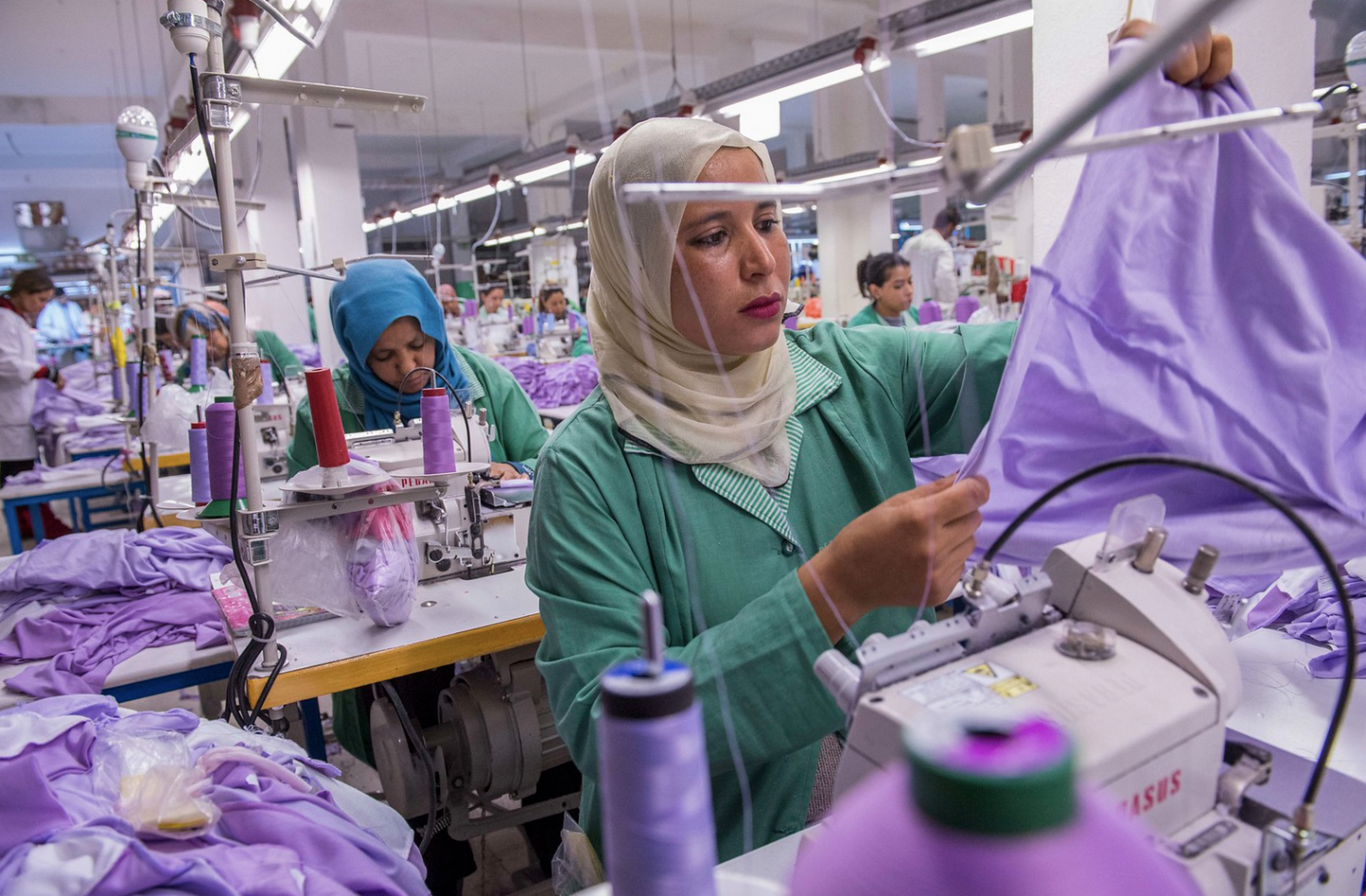Local Spotlight on the MENA region: Supporting women garment workers in Tunisia
Local action is where real change begins. In this Local Spotlight series, we shine a light on how the STITCH consortium and its local partners are driving change in production countries—by building trust, improving working conditions, and strengthening human rights due diligence (HRDD) from the ground up. Progress is rarely easy, but local steps can create meaningful and lasting impact.
This time let’s look at an example of the work STITCH is doing in one of the MENA region countries: Tunisia, where a new women’s centre is offering vital support to female garment workers.
Image credit: IndustriALL
A new space, created by and for women workers
In the heart of Tunis, a women’s centre has been established in collaboration with the STITCH programme to support women working in the textile and garment industry. It’s operated by the Fédération Générale du Textile, de l'Habillement, Chaussure et Cuir (FGTHCC-UGTT) in collaboration with IndustriALL, with support from online retailer ASOS. The centre forms part of a wider effort to address gender-based violence and harassment in the workplace, and to promote women’s rights and leadership in the sector.
“It is a space for women workers, run by women workers,” says Ahmed Kamel, Regional Secretary MENA at IndustriALL.
Workshops conducted with the women's centre in preparation to its opening
The centre offers a safe, permanent space where women can gather, organise, and build collective strength. It provides training on health and safety, women’s labour rights, and the importance of ILO Convention 190, which addresses violence and harassment in the world of work. It also serves as a confidential support point for workers experiencing harassment or abuse.
Before the centre was established, women’s committees within the unions often lacked a consistent, safe place to meet, hold workshops or deliver training. This limited their ability to organise and support one another effectively. The new centre changes that. Now, women union leaders have a space where they can meet regularly, plan their advocacy work, and deepen connections between workers across factories and regions.
Success, in this case, isn’t just about the centre itself. It’s about what it enables:
A growing sense of solidarity among women in the sector
Improved access to support, information, and training
Stronger advocacy on issues like gender-based violence and fair treatment
A model others can learn from
“Be the change you want to see,” says the head of the women’s committee at the textile federation, and that’s exactly what they’re doing. The centre is already documenting its methods and lessons learned, so it can be a model for other federations in Tunisia and across the MENA region.
This women’s centre is a powerful example of how local action, grounded in trusted relationships, can lead to real progress. It's a story of empowerment, collaboration, and long-term vision: creating fairer, safer workplaces for the women who form the backbone of the garment industry.


